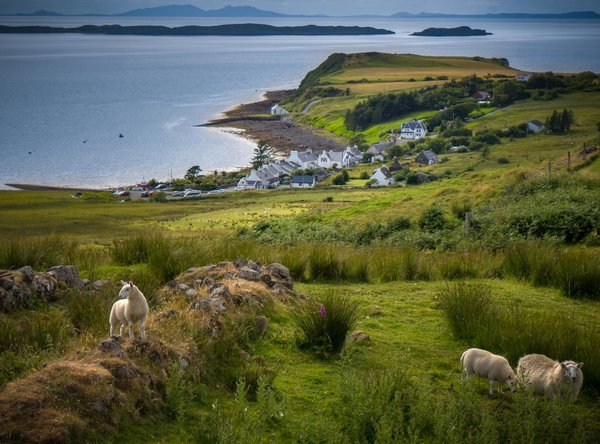Meet KALY GROUP, our new fellow member, who is using seaweed farming to restore our oceans and land
2023-06-20
Can you tell something about KALY Group?
'KALY is a natural capital platform that is working to deliver nature-based solutions to some of society’s largest environmental issues', Taco van Heusden says. 'We work on the reduction of excess nutrients in our inshore waters through the farming of seaweed and the restoration of marine biodiversity through projects that support conservation and restoration of key species.
We believe farmed seaweed has a positive environmental role to play both at sea and on land through the remediation and re-use of nutrients. The excessive use of synthetic nitrogen and mined phosphorus on land crops leads to a significant accumulation of nitrogen and phosphate in the sea, to say nothing of the CO2 emissions involved in their production. As a result, large amounts of marine flora and fauna die.
We believe that intentionally cultivating seaweed can filter these nutrients, thus contributing to a cleaner, healthier sea. After harvesting, we carefully process the seaweed into a biostimulant product for terrestrial agriculture, taking care to minimize the conversion of nitrogen into nitrous oxide. The nutrients are thus returned to the land along with the well-documented bio stimulant effects of brown seaweeds, which enhance natural land plant functions like nutrient uptake efficiency.
So you have an effective and sustainable product for agriculture that can actually reduce the amount of conventional fertilizer that enters the system in the first place. It’s a nice circular story that directly utilizes what we see as farmed kelp’s primary ecosystem service.'
What is your ambition with KALY Group?
'We have 440 hectares of optioned seabed across 5 farm sites in western Scotland. We will begin production from at least our first farm this year. Our aim is to replicate this farm cluster model 5 times over, so that we will be at 20,000 tonnes of wet seaweed within 5 years.
To this end, we work together with local fishermen who will operate and oversee the farms on a day-to-day basis, helping with seeding and harvesting. They earn money in their off-season with seaweed farming. A bit like a farming cooperative approach, but on a commercial basis. We provide the infrastructure, the off-takes and the licensing.
We are currently busy working on establishing codified methodologies for seaweed farming together with the Scottish Association for Marine Science, which is a major seaweed expert in the UK. We see this as a compendium of best practices, establishment of scientific consensus and robust measurement around potentially ‘creditable’ ecosystem services and a way to better advocate for the collective interests of this burgeoning industry in Scotland.
We are also working on bringing marine natural capital more firmly into the mainstream of Scottish natural capital projects like peatland and woodland restoration by developing biorestoration projects with native oysters. There too, we are developing credit methodology and working on the barriers and roadblocks that impede markets from forming around positive environmental and biodiversity outcomes in the sea.'

Why do you want to join North Sea Farmers?
'We like to be in the flow of information, in the mix if you will. If there are clubs with seaweed enthusiasts from industry, academia, and the general public, we want to be part of them.
NSF's research on biostimulants has already helped us a lot. We are also very interested in the tips and ideas around NSF#1 for building a seaweed farm in the North Sea.'
What could other North Sea Farmers approach you for?
'Basically for anything, we like to get to know other people in the seaweed sector.
Specifically, Biorefiners and other downstream processors, who are looking for biomass because wild harvested seaweed is not meeting their demand can talk to us.
We would also like to get in touch with the right people in Wageningen who deal with seaweed and nitrogen to see what they think.
Furthermore, we would like to speak to people who can tell us more about the technology of farm design on the North Sea side.
And we would like to look into seaweed farm operations apps and technologies, where you as a seaweed farmer can get better insights into your operational efficiencies across and within farms.'
Is there anything else you would like to share?
'I find it incomprehensible that in the Netherlands, in the whole discussion around the nitrogen crisis, the focus is mainly on buying out farmers and putting them out of a livelihood. I don't understand why nobody has yet stood up and said: you also have regenerative agriculture practices, which can be implemented in a way that protects the farmers that feed Europe rather than makes them the enemies..
In England and Scotland, we have no trouble selling the biostimulants story. People like it and find it interesting. If credits come with it, they see it as an additional source of income for their business. Once we have figured out how to market it here in Scotland, we will come to the Netherlands soon.
We hope that cultivating seaweed will contribute to cleaner oceans and cleaner land. We have used the sea as a sewer. Our job is to clean the sea. By doing so, we can also ensure that we pollute the land less.
This can be done by processing seaweed into biostimulants, as bioplastics or as animal feed, so that we no longer need to cut down forests to plant soybeans. Regenerative cultivation in the ocean and on land, that's what we're going for at KALY.'


